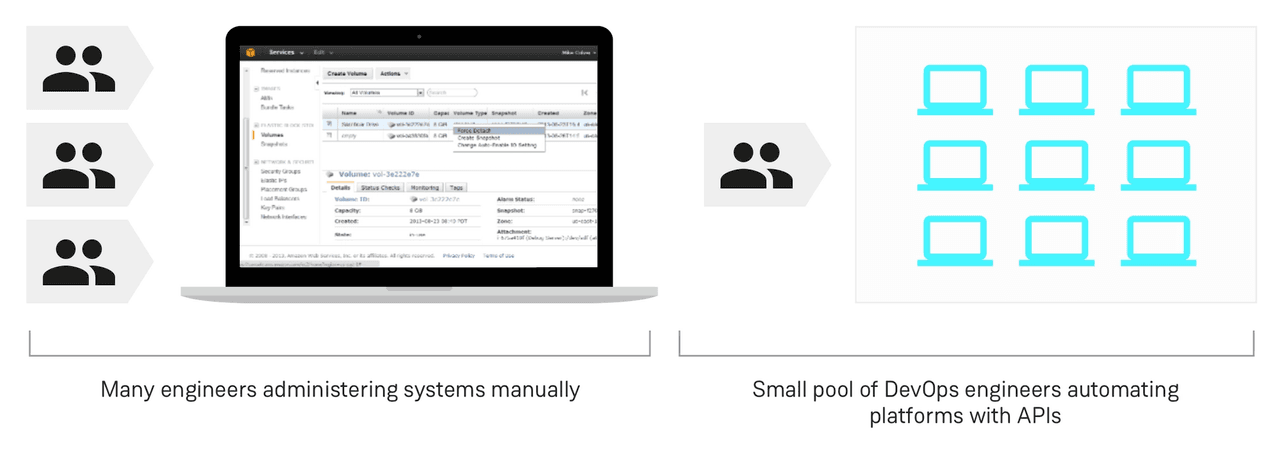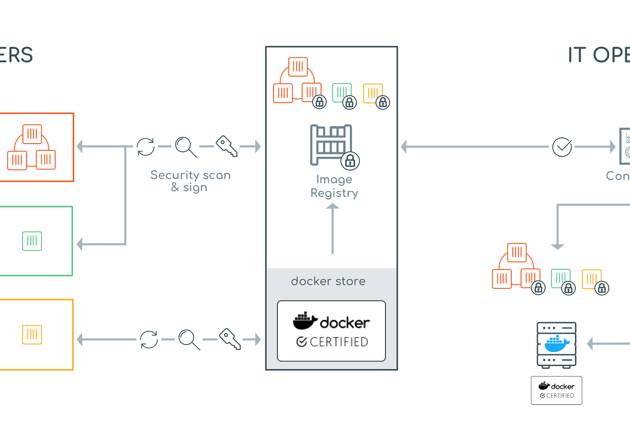Why DevOps Is Bringing Down Legacy System Integrators
Large legacy System Integrators are hurting - reducing headcounts, revenue and profits. This is particularly the case for the offshore system integrators who have historically been about using labour cost arbitrage to throw bodies at running IT, rather than working smarter.
The reason for this disruption is automation - right up the technology stack. Where before we needed people to build and run servers, infrastructure, middleware and applications, gradually the industry is following it’s own advice and automating it’s way to efficiency.
Nowhere is this more visible than in the DevOps movement. One DevOps engineer using automation tools such as Terraform and Ansible can achieve more than tens of engineers clicking around in GUIs, rebuilding environments by hand, and manually implementing changes.
Our research has shown a wide variation in the ratio of system administrator to servers within large enterprises, for instance, from between 10 and 500 servers managed by a single system administrator. Though this isn’t a perfect indicator of maturity, consider this: In 2013, Facebook went on record claiming a ratio of one system administrator for every 20,000 servers. This is multiple orders of magnitude higher than the traditional enterprise down purely to infrastructure automation and DevOps practices.
On the application side of the house, companies are also automating their deployments and moving to cross-functional teams who manage their own applications, without a dependency on external system integrators who slow them down and inhibit their ability for agile innovation.
To compound the pains for system integrators still further, we are also seeing more fundamental changes in the way technology is consumed, including a move towards cloud infrastructure, platform and Software-as-a-Service. Companies are then building more of their own in-house capabilities in the areas of differentiating digital application delivery. This further disrupts the services which system integrators have historically provided.
This all leaves system integrators with their back to the wall. Not only do they not have the skills to support digital transformation and modern approaches, they are also left defending an outdated business model of long-term, transactional contracts based around large amounts of bodies delivering manual work.
For the end client organisations, the only thing left to do is to embrace DevOps automation, and build your own capability in the areas that genuinely differentiate your own business - usually at the application tier. As enterprises are increasingly proving, the result will be a slimmer organisation, reduced costs, and massively increased speed and agility.






